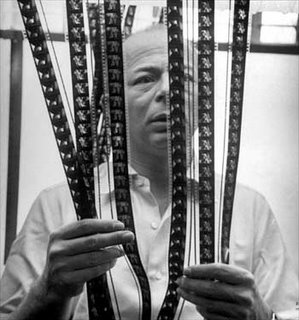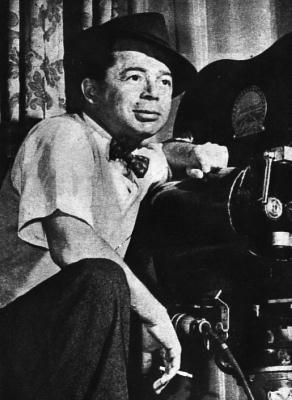"I just made pictures I would've liked to see." ......... Billy Wilder

How perfectly unplanned was my watching of Stalag 17 on the 100th birthday of Billy Wilder. I'd like to say I planned it but the plans were set in motion by Spencer days before after we watched The Great Escape. June 22, 2006 marked 100 years of Billy Wilder and, though he died in 2002, his legend still lives on.
Though Spencer has me beat on every count when it comes to classic film, I will say that Billy Wilder films are ones I typically have seen. My first exposure was Some Like it Hot during my Marilyn Monroe craze in my youth and Sabrina has long been one of my favorites.
Oddly enough, having not seen Double Idemnity (1954) before, just this week I recorded that to watch when I was low on films. Now, I realize TCM was celebrating too, and I simply missed the reason for the film.
I always find it remarkable how some people get their start. Originally Wilder planned to become a lawyer, but became a reporter for a newspaper in Vienna and later as a tabloid writer in Berlin until Hiter came to power and then he emigrated to the US in 1931, speaking no English. Once in Hollywood he shared an apartment with Peter Lorre and through that friendship he was able to break into the film industry. For the next 50 years and beyond Wilder continued to wow us again and again.
Some Wilder quotes:
[To a cameraman on one of his pictures] "Shoot a few scenes out of focus. I want to win the foreign film award."
"No, but it helps if he knows how to read" - (asked if he thought it was important for a director also to know how to write)
"People copy, people steal. Most of the pictures they make nowadays are loaded down with special effects. I couldn't do that. I quit smoking because I couldn't reload my Zippo."

Billy Wilder's Screenwriting Tips
As told to Cameron Crowe:
1. The audience is fickle.
2. Grab 'em by the throat and never let 'em go.
3. Develop a clean line of action for your leading character.
4. Know where you’re going.
5. The more subtle and elegant you are in hiding your plot points, the better you are as a writer.
6. If you have a problem with the third act, the real problem is in the first act.
7. A tip from Lubitsch: Let the audience add up two plus two. They'll love you forever.
8. In doing voice-overs, be careful not to describe what the audience already sees. Add to what they’'e seeing.
9. The event that occurs at the second act curtain triggers the end of the movie.
10. The third act must build, build, build in tempo and action until the last event, and then -- that's it. Don’t hang around.
--Kate

0 Comments:
Post a Comment
<< Home